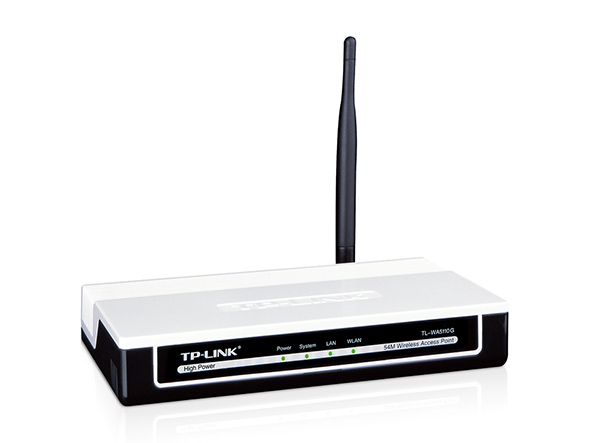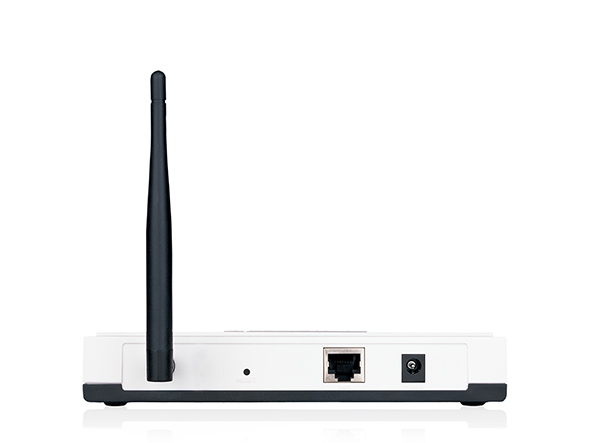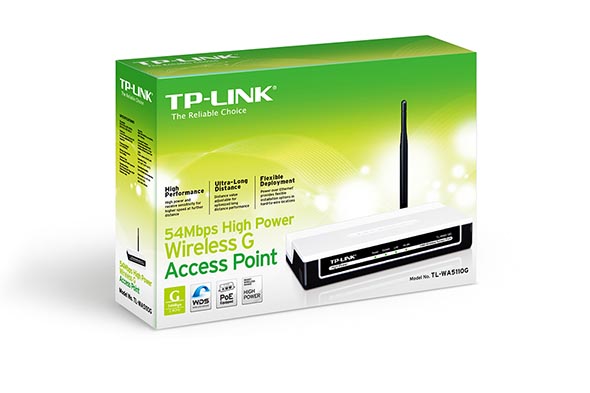TL-WA5110G
End of Life54Mbps High Power Wireless Access Point
- High Power design to boost your signal coverage and link speed
- Passive Power over Ethernet for flexible deployment
- Long distance wireless supported
- WISP Mode supported
| HARDWARE FEATURES | |
|---|---|
| Interface | One 10/100M Ethernet Port(RJ45) Support Passive PoE |
| Button | Reset Button |
| External Power Supply | 12VDC/ 1A |
| Wireless Standards | IEEE 802.11g, IEEE 802.11b |
| Dimensions ( W x D x H ) | 6.5×4.2×1.1 in. (165×108×28mm) |
| Antenna | 4dBi Detachable Omni Directional (RP-SMA) |
| WIRELESS FEATURES | |
|---|---|
| Frequency | 2.4-2.4835GHz |
| Signal Rate | 11g: Up to 54Mbps(dynamic) 11b: Up to 11Mbps(dynamic) |
| Reception Sensitivity | 54M: -68dBm@10% PER 11M: -85dBm@8% PER 6M: -88dBm@10% PER 1M: -90dBm@8% PER |
| Wireless Modes | AP Router Mode AP Client Router Mode (WISP Clent) AP/Client/WDS Bridge/Repeater mode |
| Wireless Functions | Enable/Disable Wireless Radio, WDS Bridge, |
| Wireless Security | SSID Enable/Disable MAC Address Filter 64/128/152-bit WEP Encryption WPA/WPA2/WPA-PSK/WPA2-PSK (AES/TKIP) Encryption |
| DHCP | DHCP Server |
| Quality of Service | WMM |
| Management Features | SNMP |
| Transmission Power | <20dBm (EIRP, For countries using CE Standards) <27dBm (EIRP, For countries using FCC Standards) |
| OTHERS | |
|---|---|
| Certification | CE, FCC, RoHS |
| Package Content | Wireless Access Point TL-WA5110G 1 Detachable Omni directional antennas Power supply unit PoE Power Injector Resource CD Quick Installation Guide |
| System Requirements | Microsoft Windows 98SE, NT, 2000, XP, Vista™ or Windows 7, MAC OS, NetWare, UNIX or Linux. |
| Environment | Operating Temperature: 0℃~40℃ (32℉~104℉) Storage Temperature: -40℃~70℃ (-40℉~158℉) Operating Humidity: 10%~90% non-condensing Storage Humidity: 5%~90% non-condensing |
† Maximum wireless signal rates are the physical rates derived from IEEE Standard 802.11 specifications. Range, coverage, and the maximum number of connected devices are based on test results under normal usage conditions. Actual wireless data throughput, wireless coverage, and number of connected devices are not guaranteed and will vary as a result of 1) environmental factors, including building materials, physical objects, and obstacles, 2) network conditions, including local interference, volume and density of traffic, product location, network complexity, and network overhead, and 3) client limitations, including rated performance, location, connection quality, and client condition.
Actual network speed may be limited by the rate of the product's Ethernet WAN or LAN port, the rate supported by the network cable, Internet service provider factors and other environmental conditions.








